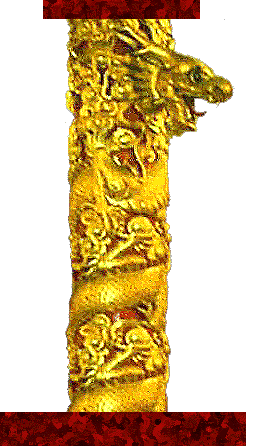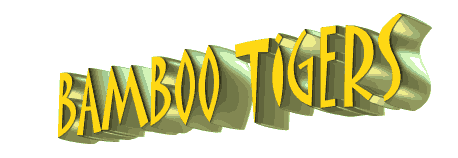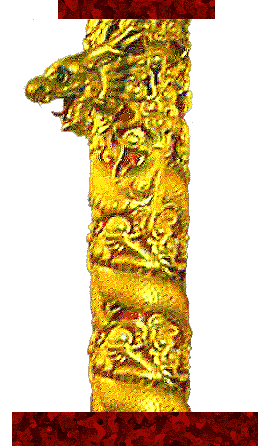| |
William Murphy, a gravel-voiced former cop who had represented a lot of policemen, defended Melvin Yu in the trial which started in early September of 1978, the day after Stuart Lin's trial ended.
A controversial issue arose, based on the fact that Melvin wore glasses. No one had spoken about the gunman with the rifle wearing glasses under the stocking mask. Thus, it became a matter of some defense. If Melvin wore glasses all the time, he might not after all have been the shooter on the lower level of the Golden Dragon.
Levine was in possession of Melvin's drivers license, which did not note a requirement for corrective lenses, and a police mug shot of him without glasses. On the latter, the argument could have been made that the police had told him to remove his glasses for the photo.
It was McKenna, usually the prosecution's expert witness on gangs and their history, who came up with a devastating piece of evidence. He found an I.D. card from the Mayor's Youth Council in the name of Steven (Halfbreed) Lee, yet it bore Melvin's picture WITHOUT glasses. Not being a police photo and, therefore, beyond the accusation of having been staged--as well as being a phony I.D.--the card, which Levine entered into evidence through McKenna's testimony, effectively shut down the glasses issues and "dirtied" Melvin in the eyes of the jury.
Another issue was the injury to his arm in the shoot-out at the Ping Yuen Project on the 4th of July. It could have been argued that the arm was still too weak, only 60 days later, for Melvin to have used the heavy submachine gun. Levine had gone over the point at great length with Dr. Stephens, the coroner, whose medical opinion he expected to be sufficient.
Murphy, as a cracker-jack defense attorney, wasn't about to let such an opportunity slip through his fingers. He made a brilliant move in asking Melvin to stand up in the courtroom, remove his shirt, and submit to an examination by Dr. Stephens himself, then on the stand.
Hardly an intimidating figure under ordinary circumstances, skinny Melvin stood before the court and exposed his hairless chest. Murphy, having tried many personal injury cases, put in a stellar performance with medical charts dealing with the structure of the arm. He knew all the names. He expounded on such things as extension and other terms that apply to limitations of movement, flexion and pronation. He so littered up the record with impressive terminology that Levine, bemused, perceived a need for something thoroughly definitive in answer.
That "definitive something" was the surgeon who had treated Melvin at San Francisco General Hospital, Dr. Laraine Day. Levine went over to the hospital and talked with her at length. He discovered that not only did she hate guns, but also she was tired of the gang kids who were regular customers in Emergency. In addition, he found out that the surgical unit gave her credit for saving Wendy Suto's life in the aftermath of the Golden Dragon massacre. She knew quite well that Melvin was in first-class physical condition and would happily have testified that he could have climbed Mount Everest with his good arm tied behind his back. Nonplussed by her enthusiasm to testify, Levine told her the simple truth would do the trick.
Dr. Day's appearance in court was straight out of Hollywood. A stunning blonde with a magnificent figure, she wore a doctor's smock in white, with a stethoscope for a necklace. Levine teased Murphy by not bringing out much information to demonstrate Dr. Day's expertise. He asked her to heft the gun. "Could Melvin Yu have fired it, Doctor?" "Yes," she replied succinctly. Levine thanked her and left the floor to the defense. Her detailed, highly professional answers to Murphy's questions effectively peeled to the bone the defense's case for the arm.
"She shut the door on the arm," Levine said afterward, "and she was also the woman who saved Wendy's life. This angel of mercy walked into the courtroom and saved our case."
During the Melvin Yu trial, unlike the Stuart Lin trial, there were a lot of gang kids in the audience. At one point in cross-examination of Peter Cheung, Levine made a reference to a gang kid who had just walked out of the courtroom. In this way, he made the jury aware of the tension their presence created. Joe Boys and Wah Ching sat on opposite sides of the aisle, trying to intimidate witnesses with "hard eye" stares. It brought home to the jury and the observing world the reason for holding these sessions in a courtroom with bulletproof glass separating the audience from a court heavily larded with security officers. All of these trials required everyone to walk in through a magnetometer.
No sooner had the jury begun deliberations than Ron Schneider walked in and informed the court two plots were afoot to help Melvin break out of the courtroom if he were convicted. In one, a gun was to be smuggled in on a fishing line to a trusty in the jail, who would give it to Melvin. The other involved kidnapping a child of a juror to try to force a mistrial. They were both supposed to occur on Wednesday because everybody thought that would be the day the case would go to the jury, but punctilious Judge Calcagno sat on the bench, and the jury had gone out on Tuesday.
Just in case, a thorough search was made of the courtroom, and everyone in the audience was subjected to search with a hand-held detector. The glass doors between the audience and the well of the courtroom were closed when the jury returned to deliver the verdicts reached during its deliberations.
While the verdicts were read, Levine found himself unable to take his eyes off John McKenna. A tall, bright-eyed, heavy-set man of imposing appearance, McKenna never comes across as a "tough guy." He does not kick in a door or "bust chops." He is a scholarly cop who speaks the king's English, a philosopher who disdains criminal acts, but does not look upon the gang kids as dirt.
But while the verdicts were announced, McKenna sat close to Melvin, who was near the glass doors leading to the audience full of gangsters. There were two sheriffs behind the boy, plainclothes cops in the audience, and a gaggle of sheriffs at every turn, but McKenna had stationed himself in a position where anyone who wanted to get to Melvin, had to get to him through the cop. McKenna, who wished no one evil, would see to it that the worst of the Golden Dragon slayers stuck around to take his punishment, even if it cost that good cop his life.
If Melvin tries anything, thought Levine, that man will sit on him, and given the fact that McKenna is probably twice Melvin's weight, no verdict will make much difference to Melvin's future.
The verdicts came in. Melvin showed no emotion then, or at any moment during the trial. He was convicted on all five counts of first-degree murder and all 11 counts of assault.
That was an important case, and its outcome buoyed Levine. The press waited outside with cameras and asked for a statement. The prosecutor felt that the newspapers had never given enough praise to the Police Department for anything accomplished in the Golden Dragon case. He said: "Melvin Yu is the most vicious, evil, cold-blooded, ruthless killer I've ever encountered, and all of us connected with the prosecution and the investigation are immensely gratified with the verdict. The Police Department made a spectacular contribution to his conviction."
| |
|









